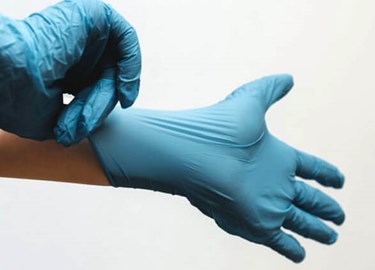
The coronavirus (Covid-19) pandemic is upon us. The government and NHS are going full-steam ahead with their preparations for the onslaught, freeing up operating theatres, intensive care units, and even private hospital beds and staff, to accommodate the expected influx of Covid-19 patients.
It is a fight that has begun but not yet peaked, and many are involved – retired doctors and nurses have re-entered the NHS, junior doctors have been re-patriated from their specialty of choice to work on Covid-19 patients . . . and anaesthetists are the new saviours.
And now every day brings new uncertainty. Patients with prostate and other urological cancers are being cancelled / indefinitely postponed for their surgery due to the anticipated coronavirus tsunami that’s expected to hit. And we have already started to feel the impact of the virus. Some hospitals are already full and over-loaded with Covid-19, whereas others are clearing the decks and making space for the impending outbreak. Indeed, at University College London Hospital (UCLH) the anaesthetists have taken a different strategy to intubating Covid-19 patients early as done in Italy and China, preferring to pursue non-invasive ventilation methods for as long as possible.

This has facilitated the use of fewer resources, freeing up anaesthetists and intensive care nurses who would otherwise be managing intubated patients. Perhaps this is a function of the local population being slightly younger and fitter than in some other parts of London, but it is a strategy that appears to be working. Plus, the new field hospital at the Excel Centre will accommodate even more Covid-19 patients and many colleagues at UCLH will be an integral part of its workforce. But as well as our fight against Covid-19, we also need a strategy to prevent death and disability from other non-viral conditions. After all, the NHS was busy dealing with all the other illnesses people suffer from well before Covid-19 reared its ugly head.
So, what will happen to these patients? The ones who aren’t admitted to hospital with Covid-19, but rather have asthma, cancer, diabetes, heart disease, and so on. What happens to a cancer patient who needs chemotherapy because they have end-stage cancer, and the chemotherapy will give them a few more months. Well they may no longer get the treatment, as chemotherapy can make you more susceptible to succumbing from Covid-19.
This will mean cancer patients will be more likely to die quicker than they otherwise would, but still less likely to die than if they got Covid-19 while on chemotherapy. It’s a Hobson’s Choice. And what about the fitter, curable patient with cancer – the one that could have an operation and be ‘cured’? Well, they are deemed not ‘time-critical’ enough to warrant their operations in the current viral climate. So, they are stuck in a ‘holding pattern’, rather like flights not yet cleared for landing. Flights . . . who remembers what those are now?
And when this is all over . . . when the NHS (and the private sector seconded to the NHS) have managed to ‘fight’ the viral enemy . . . when children are back to school, shops are back in business, and you can go out and get a curry (and perhaps not have to queue for hours to buy bog-roll), what then happens to the countless men, women, and children who have been in that ‘holding bay’ – how does a previously over-stretched NHS cope with managing these patients plus the ones that will newly present with these illnesses during the crisis. It will be the mother of all backlogs for sure. Unless we start to strategise now. Just like we did for the economic impact of coronavirus, with the Chancellor’s smart initiatives to stop people and businesses going bust, we need to think how to stop non-Covid patients getting sicker.
“We need to redistribute resources and create hubs of non-Covid environments to treat urgent cancer and non-cancer patients who will suffer and possibly even die”
We need to redistribute resources and create hubs of non-Covid environments to treat urgent cancer and non-cancer patients who will suffer and possibly even die if kept in these ‘holding bays’. We need to consider deploying some specialist doctors to triage patients with conditions they know about, and give them the resources in centres designated not to take Covid-19 patients (‘Covid-free’ centres) to treat the most urgent of these non-Covid patients.
This has already started in London with the ‘cancer hubs’ organised by the Royal Marsden Hospital in collaboration with UCLH and Guy’s & St. Thomas’ Hospitals. Surgeons and anaesthetists will be designated specifically to these sites and will treat the most urgent of cancers across all tumour types. The three private cancer networks, Rutherford, Genesis Care, and HCA, have also been brought in by NHS England to treat NHS patients, further increasing the cancer care capacity during this time. Prostate cancers can mostly wait on surveillance or be held with hormones, but other urgent urological cancers like bladders, kidneys, and testes will be included. While mental health issues among cancer patients is on the rise due to the all-consuming nature of coronavirus, these new initiatives will go a long way in reducing stress and anxiety for our patients. But we need more of these cancer sites all across the country, not just in the Capital and South-East. Or else, while we may hope to celebrate the end of the Covid-19 outbreak in the summer, we may lose sight of another tsunami of deaths – those without the virus who get left untreated during our fight against the virus.





